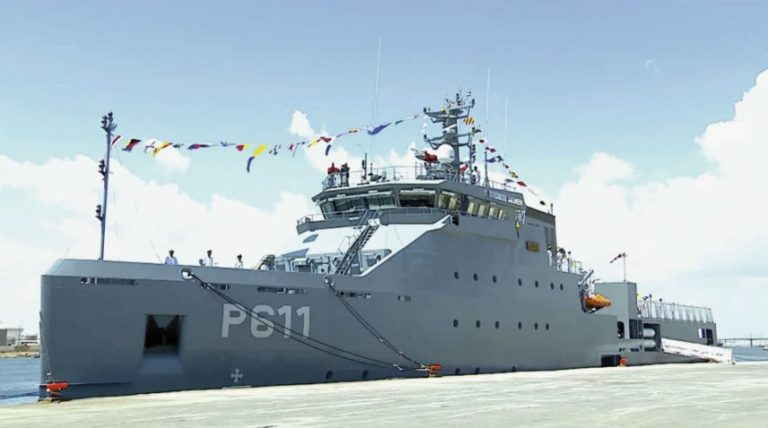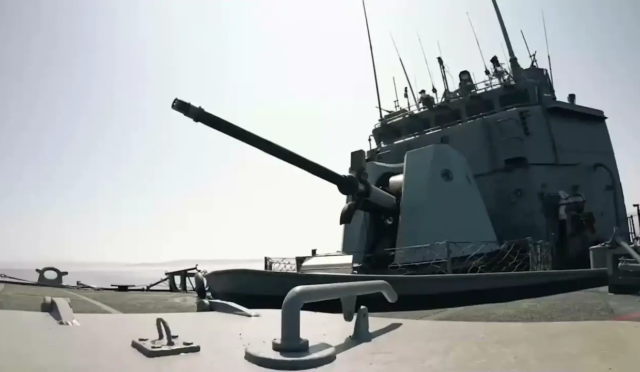Strengthening Maritime Security with New Patrol Boats
**The Tunisian Navy has bolstered its maritime capabilities with the addition of two Island-class patrol boats, generously provided by the United States.** On April 17, 2025, an official commissioning ceremony for these 34-meter vessels took place at the La Goulette naval base, situated near the capital city of Tunis. The event was further marked by the presence of the USS Mount Whitney (LCC 20), the flagship of the U.S. Sixth Fleet, which was visiting the port on the same day, underscoring the joint maritime commitment between Tunisia and the U.S.
These newly acquired patrol boats come equipped with modernized features after being transferred from the U.S. Coast Guard. Each vessel is capable of reaching speeds of 29.5 knots and boasts a substantial operational range of over 3,000 nautical miles. Among their military attributes are a 25 mm Mk 38 machine gun, two .50 caliber machine guns, advanced radar, and navigation systems. Such enhancements are anticipated to significantly elevate the Tunisian Navy’s operational capacity in maritime patrols, border security, counter-smuggling initiatives, and search and rescue missions.
A History of Cooperation and Commitment
The delivery of these patrol boats is a clear indication of the United States’ dedication to strengthening Tunisia’s military capabilities. Over the years, U.S. military assistance has focused on enhancing Tunisia’s resilience against traditional and asymmetric threats. Given Tunisia’s strategic location in the Mediterranean, along with its proximity to areas of instability in North Africa, such collaborations are essential for regional security.
During the ceremony, Admiral J.T. Anderson, Commander of the U.S. Sixth Fleet, voiced the growing collaboration between the naval forces of Tunisia and the U.S. He remarked on the significant role that robust maritime partnerships play in regional security, indicating that these modernization efforts reflect a strong commitment to enhancing Tunisia’s defense capacity.
Commemorating a Shared History
An additional layer of significance surrounded the commissioning ceremony, marking the 220th anniversary of the Battle of Derna, which took place in 1805. This historical event serves as a testament to the long-standing partnership between the U.S. and Tunisia in maintaining maritime security across the Mediterranean. The Battle of Derna is recognized as one of the first military engagements where the U.S. successfully addressed piracy threats in coordination with its Tunisian allies.
In a related statement, U.S. Ambassador to Tunisia Joey Hood emphasized the deep-rooted historical ties and the contemporary strategic partnership shared between the two nations. He pointed out that the commissioning of these vessels not only aligns with Tunisia’s security objectives but also contributes to the broader vision of maritime safety across the Mediterranean region.
Regional Implications and Future Prospects
In recent developments, similar Island-class patrol boats have been inducted into service by the Greek Navy, highlighting a broader trend of upgrading maritime forces within the region. This reflects a growing recognition among Mediterranean countries of the need to enhance their naval capabilities to address evolving security challenges effectively.
As Tunisia embraces these advanced patrol boats, it stands to not only fortify its own maritime security but also to contribute positively to regional stability. The collaborative efforts between the U.S. and Tunisia are a promising step forward in navigating the complexities of maritime threats and ensuring safe navigation in this vital sea route.







